7:00AM to 5:00PM
If you’re sitting comfortably on the couch and having a good time but not planning to go outside, we have a reminder for you! While a hot coffee and a warm fire in cold weather are at the top of your priorities as winter approaches, it’s also wise to keep in mind and winterise your plumbing and practice extra safety precautions. Can you imagine having low water pressure from your water heater and the cold air freezing you before you wonder what went wrong with your hot water system? Trust us, when winter hits, you don’t want to deal with a frozen pipe or another severe damage in your plumbing systems while everyone’s inside enjoying a warm blanket during the winter season.t
We understand checking your home plumbing system is a monotonous job. Still, it’s the only way to avoid hefty repair bills, with all the other options costing more and additional significant problems. With the ceaseless torrent of hail, rain, and winds come many plumbing issues you’ve been putting off to deal with later. Problems such as frozen pipes, cracked walls and leaking roofs are waiting just around the corner.
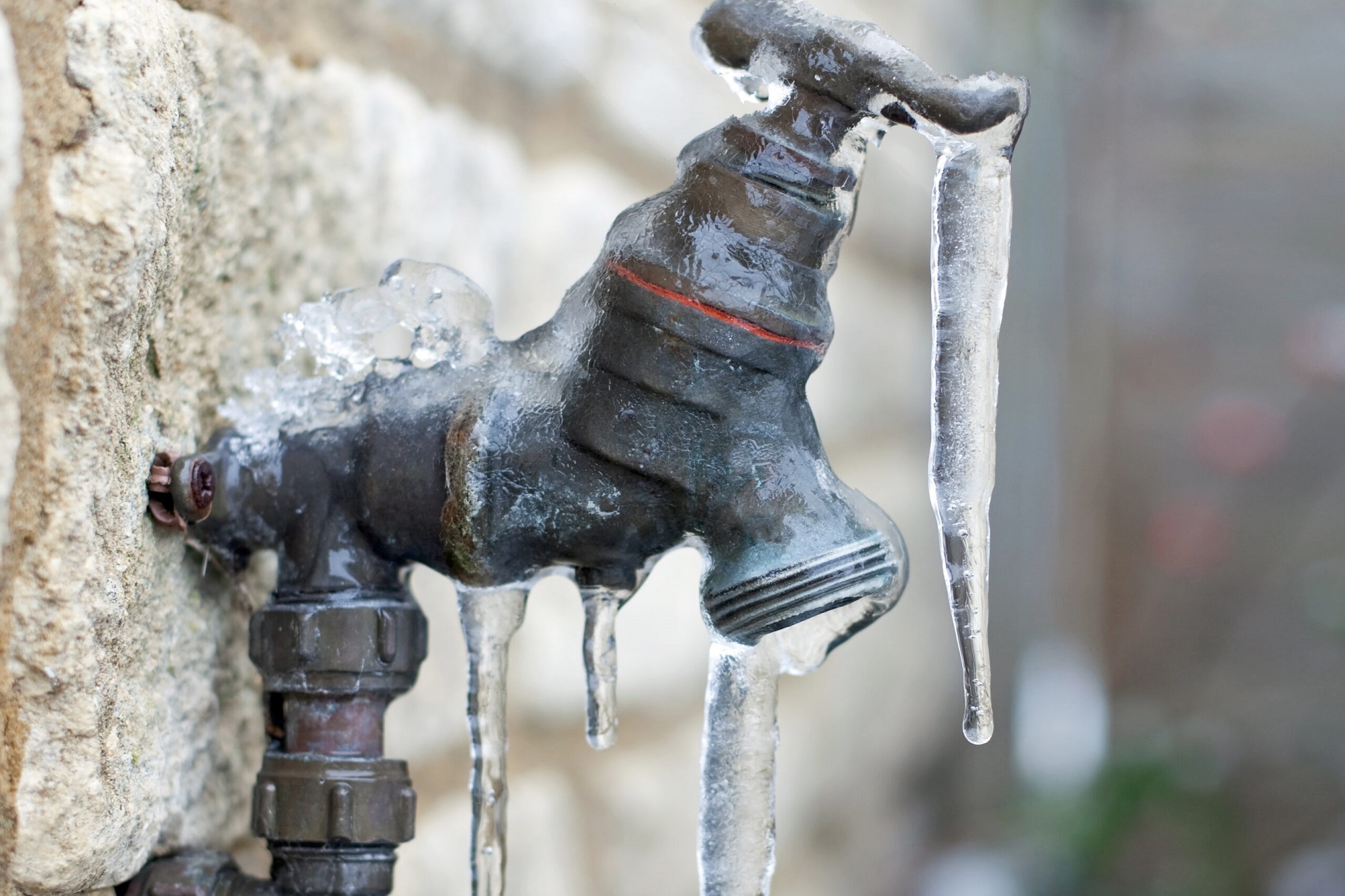
To avoid the nightmares of extensive restoration projects and to avoid unexpectedly finding yourself in ankle-deep, chilly water, prepare your plumbing systems for winter in the best way possible! Let’s not wait for the cold season to be in full swing and only expect warm air and warm thoughts during it.
To make things easier with your household plumbing system, we’ve got this detailed guide and plumbing tips to take you through all the things you need to tick off the list while getting the plumbing in place for winter in the most effective way.
Winterising the house’s plumbing might sound dull, but that’s neither difficult nor time-consuming.
We recommend hiring a professional plumbing service for preventative maintenance on your home plumbing system for a thorough inspection. However, if you want to do it alone, make a checklist of everything that needs examination and go through it individually.
To maintain a well-maintained plumbing system during winter, you must take a few essential steps and follow some plumbing tips, and we’ve got them right here for you.
In winter, the last thing you need is an icy stream of water interrupting your bliss and turning your hot shower into a cold shower. To prevent this from happening, remember to get the water tank serviced. Year-long sediment and calcium build-up can settle on the bottom of the tank, reducing its capacity to hold warm water. This will increase electricity costs, as you’ll need more water throughout the day.
In addition, the pipes leading back and forth to the water heater require servicing and insulation to maintain their efficiency and prevent them from bursting.
Besides, we’d also like to add that annual maintenance will enhance your heating system’s efficiency and longevity. It reduces the chances of underperforming during the months when you need them the most.
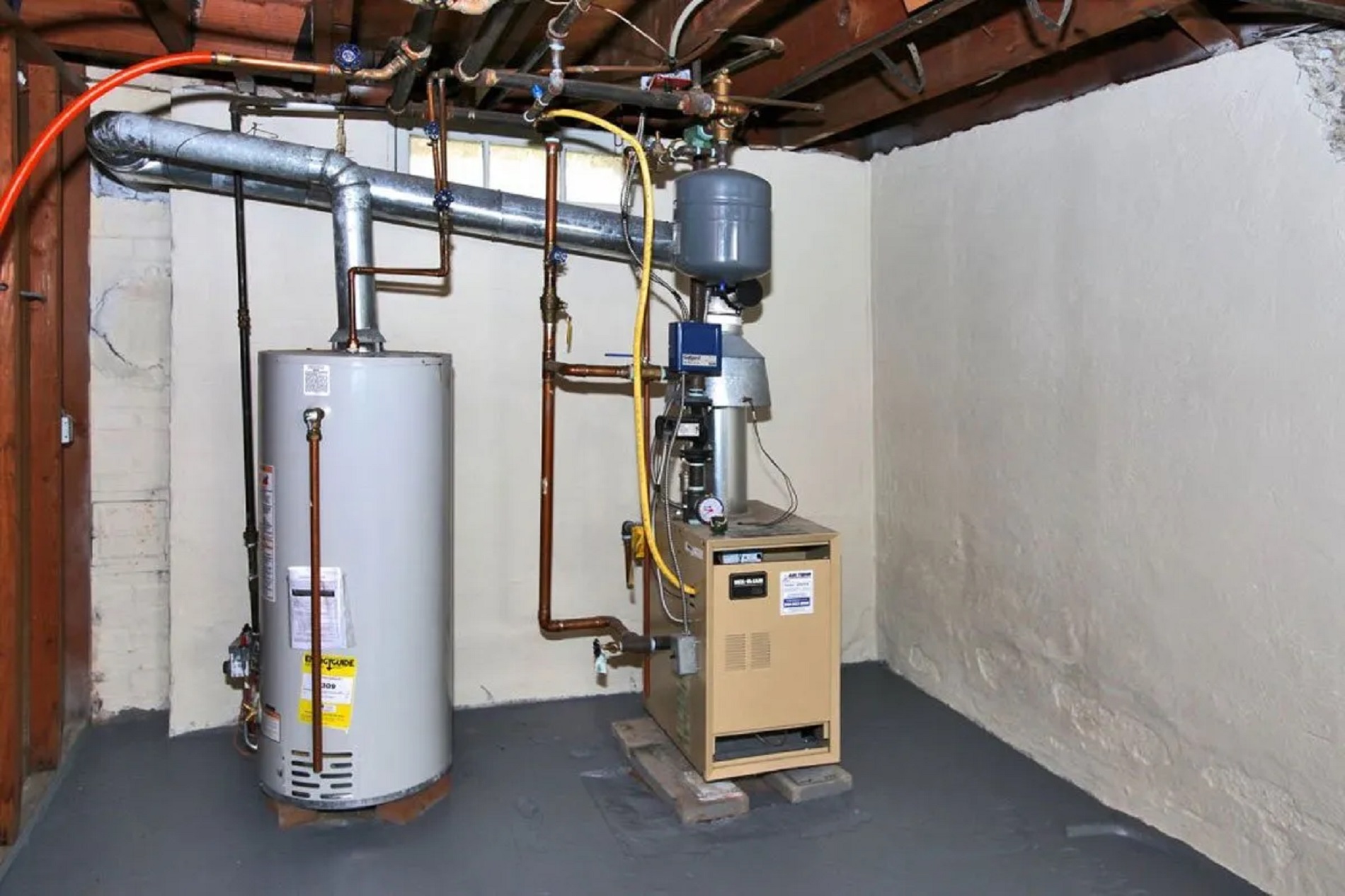
Thus, as soon as winter approaches, either manually clean the water heating system or hire a professional to do the same. They will assess the system, check for potential defects, remove calcification and suggest other replacement needs or if you need a new hot water system.
So, service the hot water system immediately and make it winter-proof to save yourself from the onslaught of cold water in the middle of a hot shower.
As the temperature drops, pipe leaks can become a common problem. Pipes on the house’s exterior walls or in unheated areas (garage or attic) freeze and burst during winter.
Proper insulation can prepare the water pipes for winter and avoid frozen pipes. Also, you wouldn’t have to spend time and money restoring burst pipes.
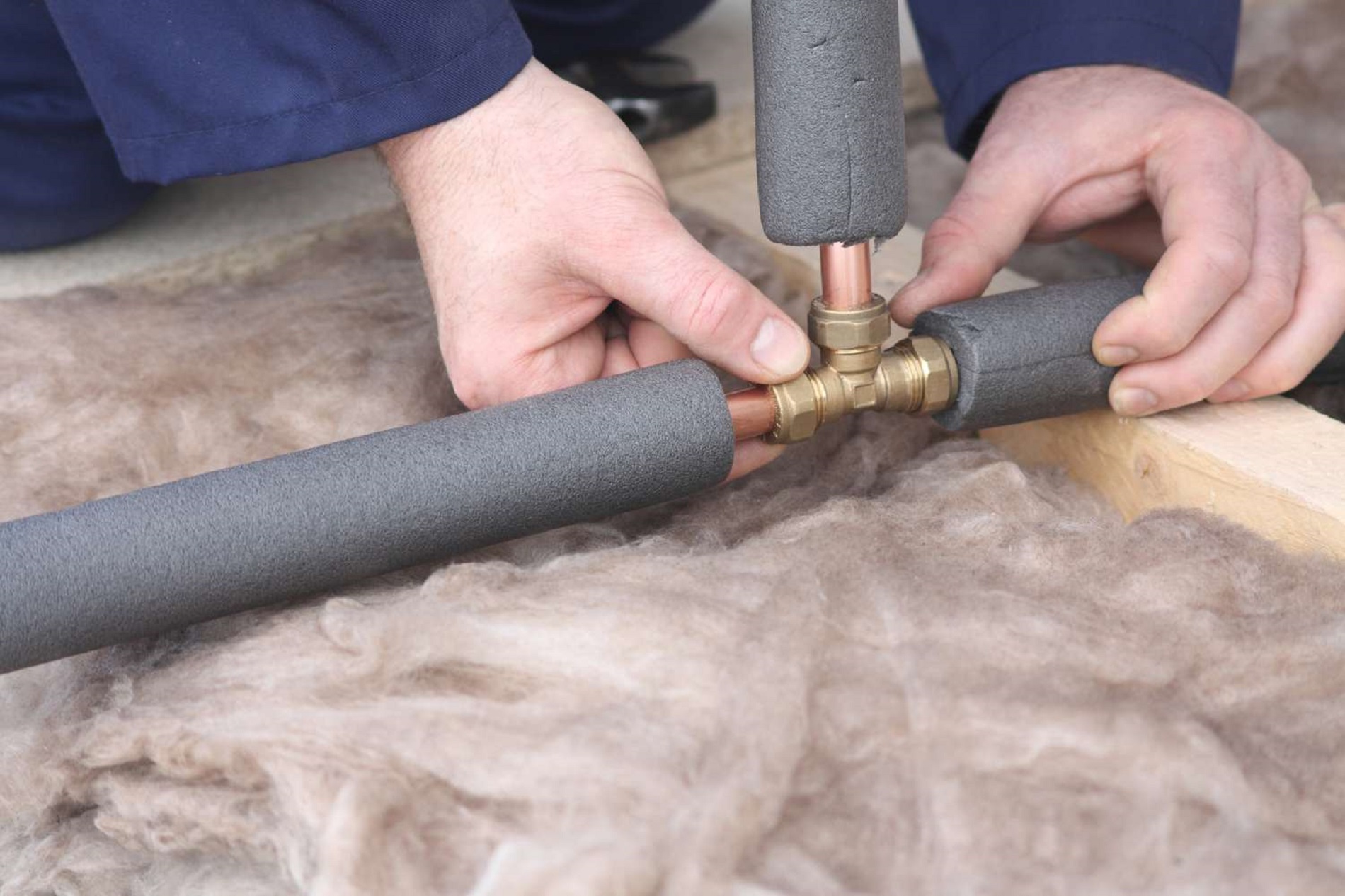
Insulating pipes running through unheated spaces in the house is crucial to prevent them from freezing. It also prevents water loss by keeping the heat from escaping to the surroundings.
If you want to reduce energy costs, we’d recommend insulating hot water pipes even in the house’s interiors. It minimises water loss through radiation and keeps the water hot for longer.
Although there are several insulating pipes, We’ve listed two popular methods.
Pipe wraps insulate water pipes that have bends or are smaller in size. Materials like heat tape, foam, foil, and bubble film can be used for this process.
To insulate the pipe and seal cracks, loop the material around it, carefully covering the entire length. Do not leave any space in between. It’s a simple do-it-yourself process, but you can hire a technician for a more professional finish.
Consider insulating through padded pipe sleeves for straight, long pipes. You can get padded sleeves that are 6 feet long, with different diameters, which allows you to cover in one go.
It comes with a rubber or foam padding, so all you have to do is slit open the sleeve from one end and slide it over the pipe. Once you’ve done that, seal the seams using an adhesive. If the pipe is longer, you can continue with the same process and use duct tape to join both sleeves.
Before the winter surge, inspect the drainage system for blockage. During fall, leaves, debris, and twigs accumulate in the gutter, causing it to clog and overflow.
Clogged gutters also accumulate water, which has nowhere to go and damages the house’s roof. Therefore, meticulously cleaning clogged gutters can prevent roof leakage and moisture seepage.
While at it, remember to conduct a proper inspection and check the pipes in the gutter for leaks or signs of rust. They are usually repairable, but if they’re in a dilapidated condition, consider replacing them.
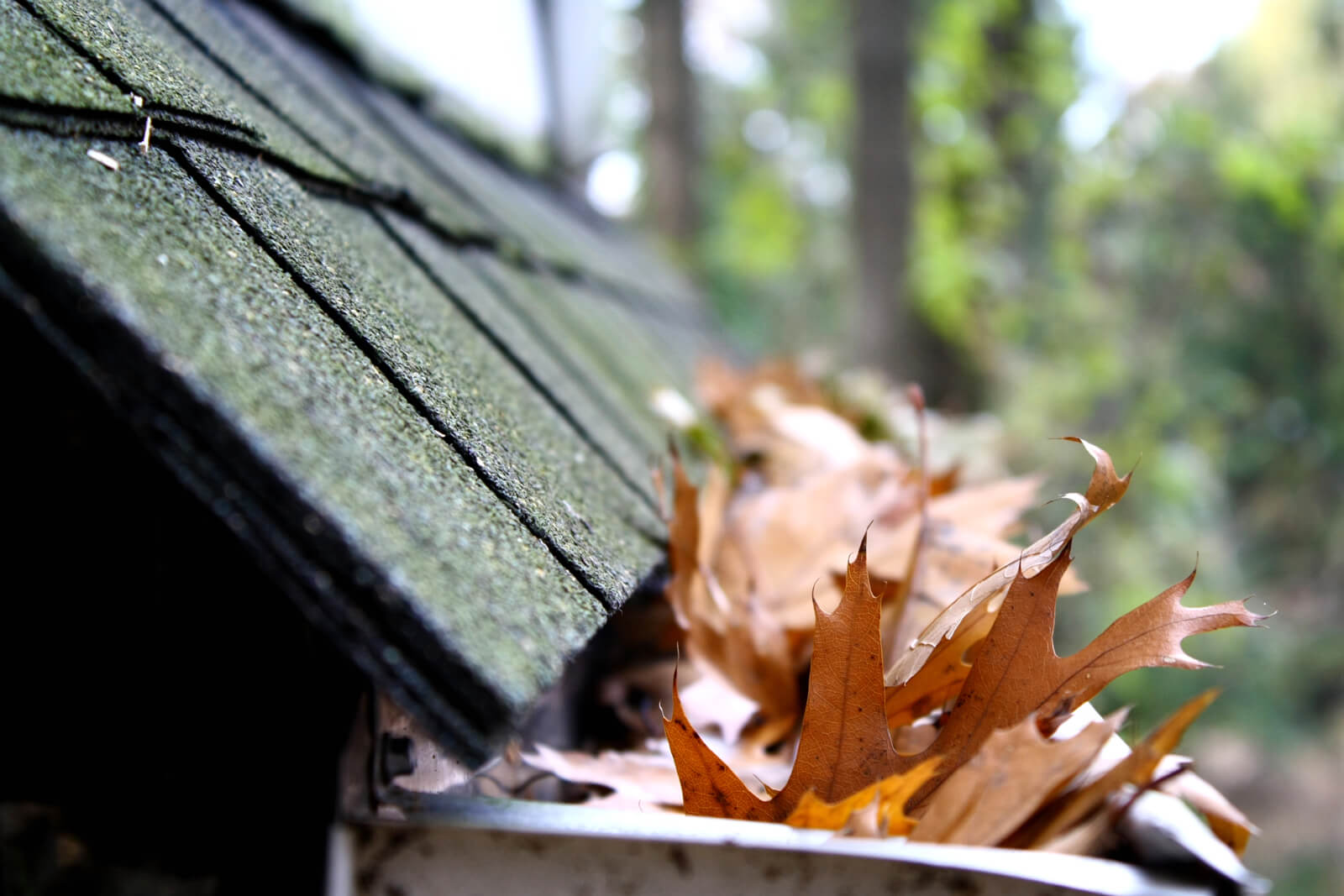
The roof and the house’s foundation can fall victim to malfunctioning gutters. Downspouts help smooth the drain off of rainwater. Maintenance is crucial because they don’t let excess water reach the place.
To avoid rupturing or overflowing, check the downspouts and wrap them in heating cables or foam wraps. This prevents ice from accumulating in the pipes, which would’ve otherwise burst, leading to leaks and cracks in the foundation.
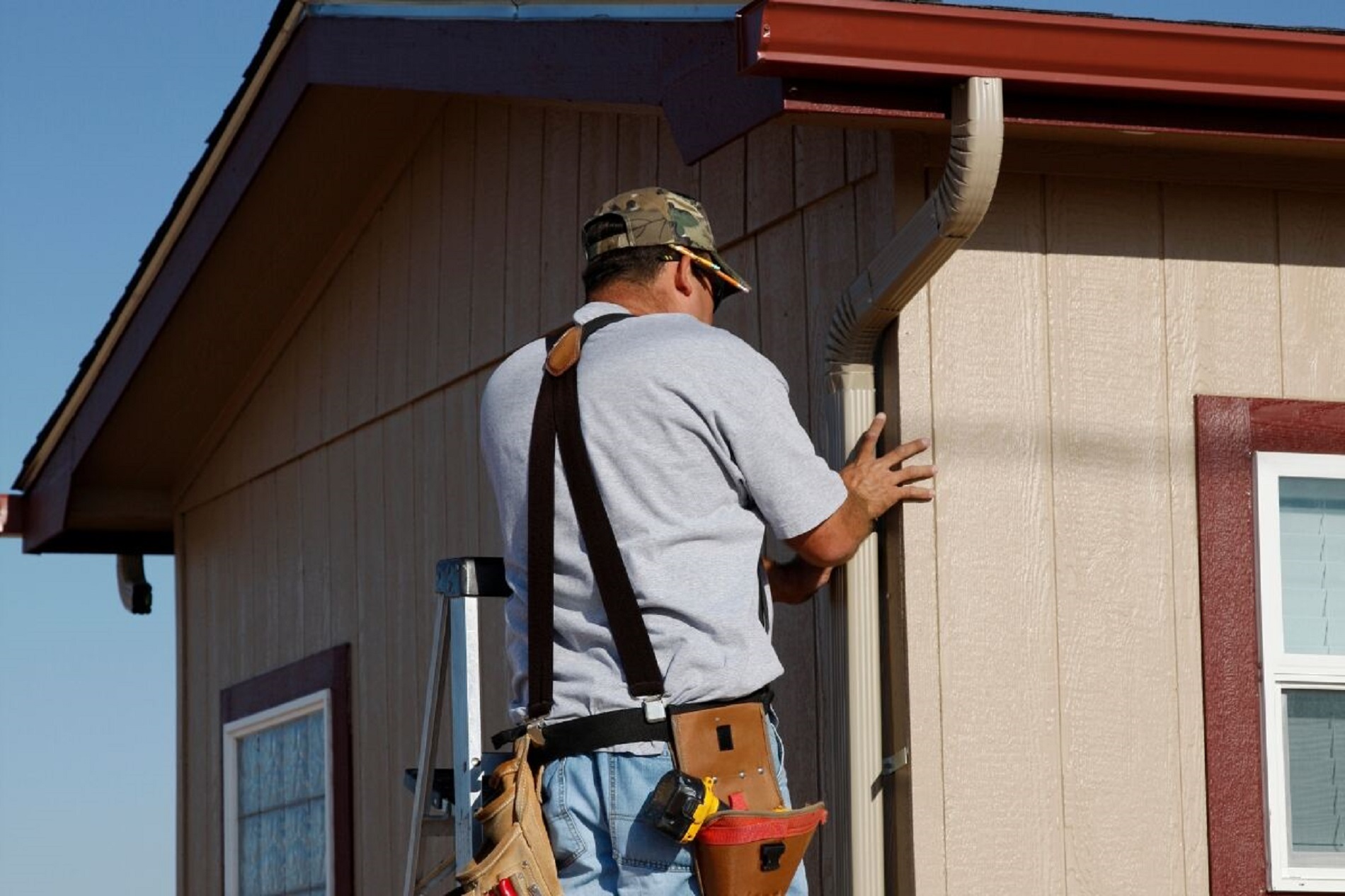
Remember, your downspouts should be in good condition and are essential for adequate drainage. Consider replacing them if they’re rusted or beyond repair.
Inspecting and repairing your gutter and downspouts timely will save costly repairs in the future.
Heavy rain and wind wreak havoc on the roof. Though leaking roofs might be a mild irritant during summer, they can be disastrous during winter. So before winter strikes or a heavy rain beats you to it, inspect your roof for leakage and cracks. A leaking roof damages the house’s ceiling and poses a fire hazard since water drops might fall on the electrical wires.
Even if the roof isn’t leaking, inspect it for moisture retention that might accumulate in the ceiling and make it cave in.
You might also want to check for cracks in your walls and ensure they are fixed. This will prevent cold air from entering and contacting your plumbing pipes.
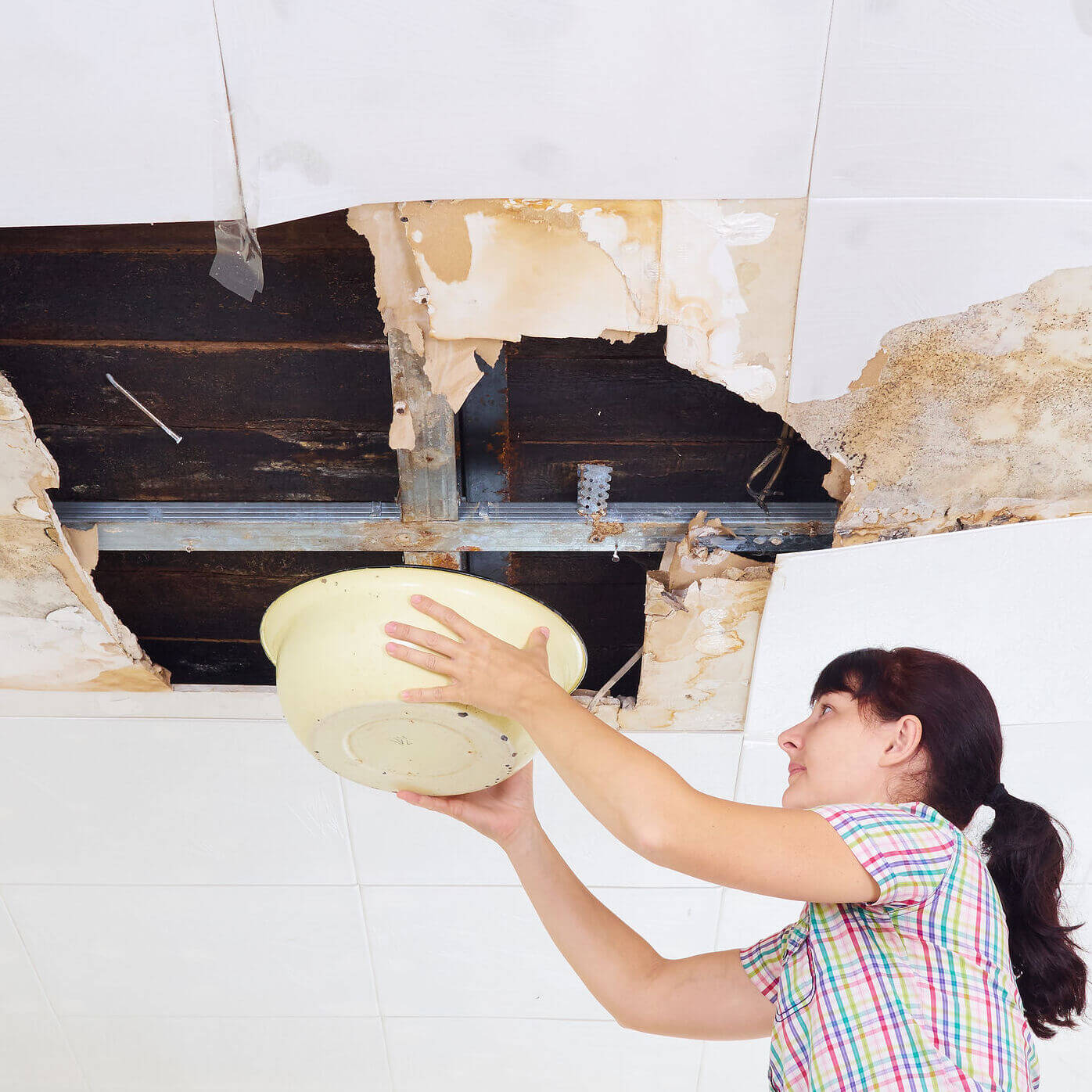 6. Winterise Garden Hoses
6. Winterise Garden HosesPeople often overlook garden hoses when it comes to plumbing preparation for winter. While they’re beyond helpful during the summer and spring, they must be stored away during winter.
Remember to shut off the water before disconnecting the garden hose from the spigots, also known as hose bibs, and drain the leftover water.
If not emptied and put away, the garden hose will freeze during winter and rupture, affecting the plumbing system and damaging crops.
Please don’t leave any garden hoses outside. Coil and store it in a dry area. However, just draining the hose is not enough. Insulate the hose bibs and deactivate the water connection from the main valve.
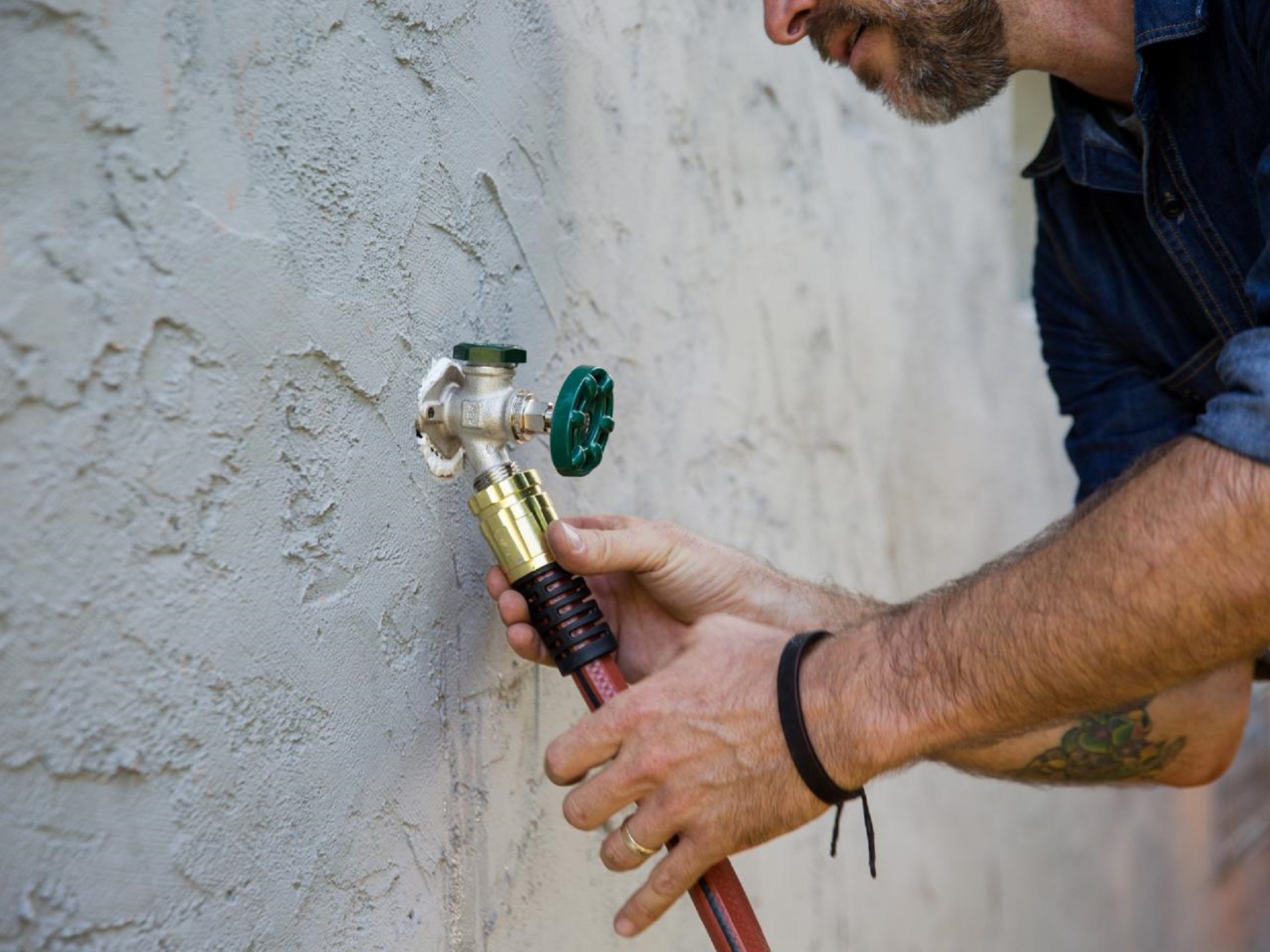
Even if everything seems alright, inspecting the plumbing system right before winter is beneficial. So you’re not caught off-guard. As temperature drops, it’s crucial to take extra safety precautions for your plumbing system. Some minor issues that can be set immediately might exacerbate during winter. And it can lead to a messy situation, getting out of which will cost a fortune.
Thus, quickly check the roof, pipes, and faucets. If your outdoor shower is leaking, you better fix it now. Turn the shutoff valve, repair or replace rusted pipes, fix cracked roofs, and clean the gutters.
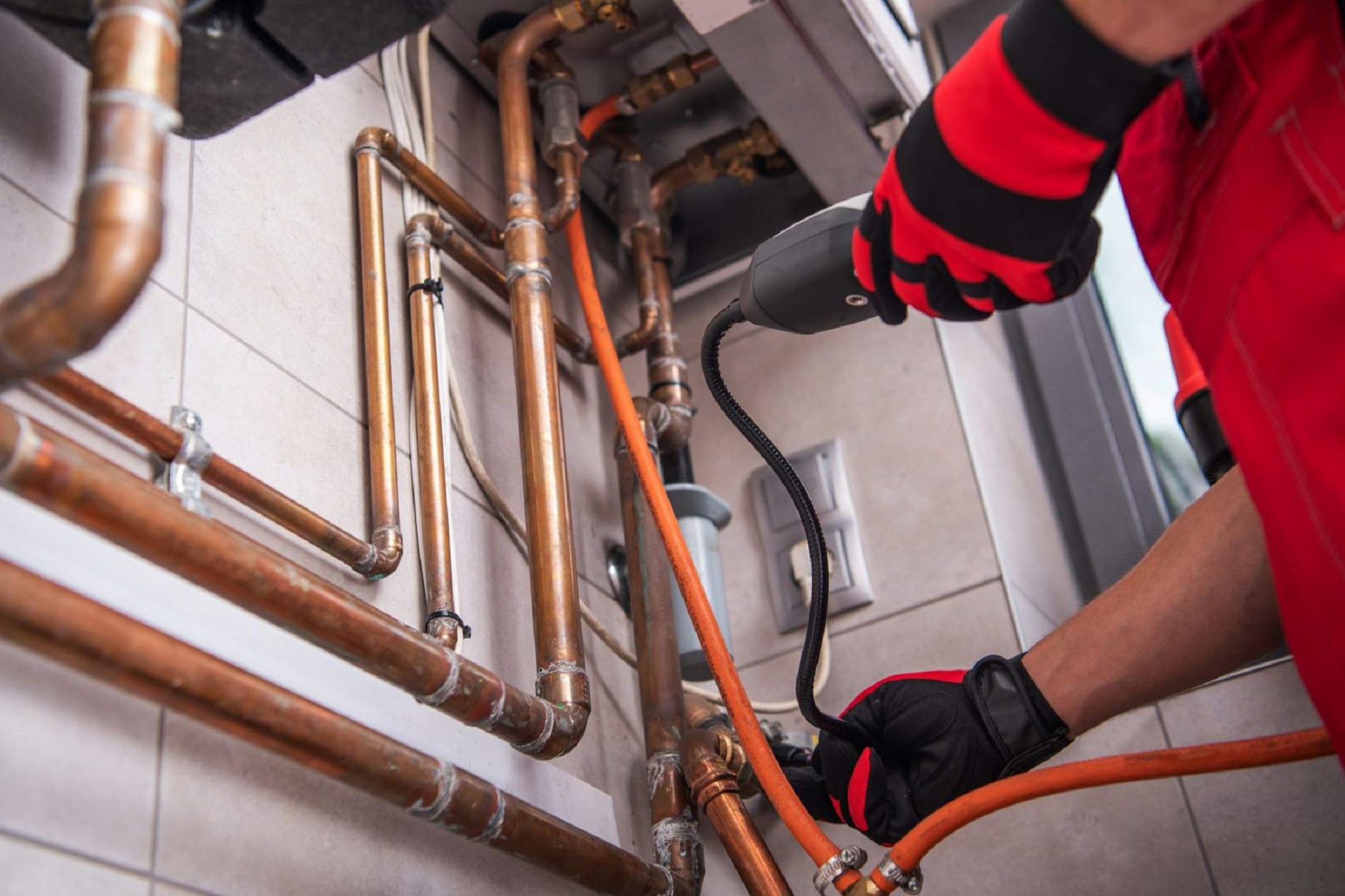
After winterising the pipes and inspecting the roof for leakage, you should still be ready for emergencies and the worst-case scenario. After all, as the saying goes, it is better to be safe than sorry. Plus, it is always helpful to know where the primary shutoff valve in the house is.
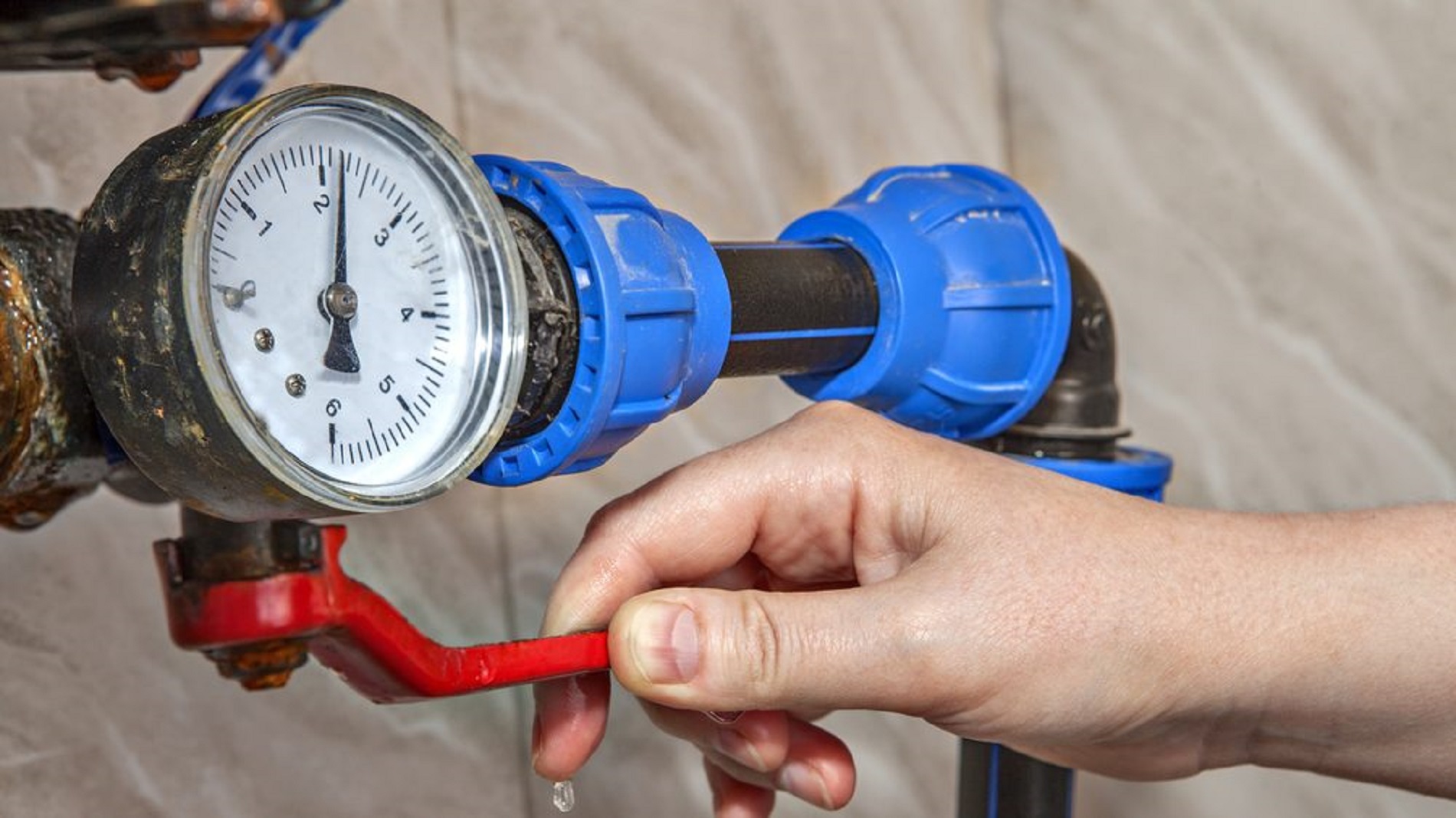
Plumbing Preparation For Winter 7
If there is a burst pipe situation, you can rush to the main valve and turn it off, stopping the water supply to the house. This will give you adequate time to inspect the cause of water logging and call a plumber.
Just knowing the location of the main valve isn’t enough. Remember to frequently inspect it for potential damage and ensure it isn’t jammed.
Also, if you’re leaving town in winter, shut off the water supply from the main valve.
With that, we come to the end of our guide. We hope you’ll now efficiently prepare the plumbing system for winter and have a maintenance check performed. It’s better to have extra safety precautions than to be caught dealing with a problematic plumbing system when winter hits. Winter months are long hours of sleep and binge-watching TV shows while cozily wrapped in a quilt. So, why let a faulty plumbing system ruin your fun and good time? Not to mention the cost of calling a highly recommended professional team to deal with the plumbing problems. Repairing a damaged roof or a wrong pipe will need a budget.
Need a professional plumber for your household plumbing system? Don’t ignore the minor and major problems in your home’s plumbing system. Call us! No matter your plumbing problems, you can rely on us to effectively give you different options and solutions. From limiting your extensive water damage to maintaining your water heater and other hot water service, assisting you with your pipe insulation for all those exposed pipes during the cold weather, and even installing outdoor faucets for your garden hose and ease— you can rely on us! We go the extra mile in all our plumbing services to provide you with the plumbing solutions you deserve.
For leaking taps, gas appliance installation and repair, a blocked drain, and other plumbing issues contact our professional plumbers quickly for excellent plumbing services before the cold season starts!
Are you considering replacing your old unit with a new hot water system? Contact us to learn about the latest updates and highly recommended brands today. We know the right hot water system for you, from Thermann to Rheem, Rinnai, and more.
Here’s a quick pro tip: you can prevent exposed pipes from freezing by leaving the faucet on and letting the water drip slowly.
So, have peace of mind, stay warm, and keep the pipes warmer! See our recent posts or call us for a few pointers for your plumbing system.